- Home
- Patrick Robinson
Barracuda 945 (2003) Page 7
Barracuda 945 (2003) Read online
Page 7
"By 1800, it's over. But it's not until Monday morning they discover that sometime during the weekend, a gang hit the bank and got away with all the dollar bills, mostly old, all unmarked. Streuth! That caused a major investigation.
"And the upshot of that was as follows." Ramshawe read from handwritten notes:
1. The gang got in through the roof, blowing off the lock to the fire stairs.
2. They knew where the alarm system was located, and they silenced it with a burst from an MP5 submachine
gun. Put the bastard right out of action.
3. They knew where to find the strong room, which houses the vault. They located the security system, which
was not timed, dismantled it, then blew the vault open and took all the bread. Conclusion: an inside job.
4. They got away off the roof, because none of the doors or windows anywhere in the building had been opened.
5. A large military-type helicopter, probably a Sikorsky, and probably unmarked, was seen by several onlookers,
taking off from the roof in the middle of the bloody riot, and everyone assumed it was to do with the bloody
riot. But it wasn't. And it was five days before anyone realized that.
"I think anyone would agree, there's distinct overtones of a brilliantly planned heist. Military in its nature. Almost."
"Where'd you get all this stuff, Lieutenant?" asked George Morris.
"Well, some of it was reported in the Israeli press. But I filled in a lot of details from a guy at Shin Bet. We got a pretty good quid pro quo with them.
"But you know, Admiral, it was never a big story, and I think the reason for that was because the bank never let on how much cash was stolen. They played it all down, because, of course, the bills were going to be destroyed anyway. You could argue that technically the bank lost no money. But bloody oath! The cash would be real handy for a bloke who wanted to do some heavy spending."
"Sure would," mused the Admiral. "Any take on how much cash was actually removed?"
"Not accurately. The police announced the sum stolen may have been six figures. Which sounds like not much for a bank robbery. But our guy in Shin Bet thinks it could have been $50 million, in used dollar bills."
"Jesus," said Scotty.
"Anyway, that story appeared in the Jerusalem Post on Tuesday morning, 28 December; small, inside page, six paragraphs, no photograph of the bank. No mention of $50 million, or of the helicopter. I also thought it was significant that the pro-Palestinian Jerusalem Times never did carry the story . . . and that brings us to robbery number two, which took place in Tel Aviv, thirty-eight miles away along the Sorek Valley."
Lieutenant Ramshawe changed over the map in front of the Admiral, and pointed up an area of the urban sprawl of Tel Aviv-Jaffa, specifically around King Saul and Weizmann streets, where the most dazzling modern edifices stand.
"Right here, sir, is another New York and Beirut bank, in a high-rise. It's the main branch on the coast, bigger than the one in Jerusalem, and again a place where the dollars on the West Coast end up, before being transported to Jaffa Road
.
"Now, sir, according to the police, this place was robbed on Saturday night, 26 December—just a few hours after the bank in Jerusalem. This robbery was discovered by the cleaning staff on Sunday, because they did not work on Christmas night. This story was also played down, and appeared in Monday morning's Jerusalem Post, the day before news of the Jerusalem robbery was printed. . . I've put together some more notes which I'll read because they're just handwritten, and then I'll get 'em printed up:
1. This operation took a long time. The thieves had rented a much smaller building next door, four months
previously, and then tunneled their way through into the unused lower basement of the bank. They actually cut
through a couple of steel pillars.
2. They used ladders and scaffold to reach the ceiling and battered their way through a cement floor, the police
say using drills and sledgehammers.
3. Once inside, they went straight to the electronic surveillance and alarm system and hit it with just one bullet from
an MP5, right in the side so you could hardly notice it. That gave them one hour, because this place had a
timed security system override, and it would be that long before an alarm was raised. And that bloody hour
was all they needed.
4. They reached the Tel Aviv vault, identical in every way to the one in Jerusalem, and blew open the gate and the
safe, with the minimum of explosive, much less than they had used in Jerusalem.
5. Then they closed the vault, and the gate, dropped all the bags of dollar bills through the floor into the basement,
placed a thin piece of plywood, around four-foot by four-foot, over the hole under the carpet, somehow flipped
the carpet back into place, and dropped through the hole to safety.
6. When the bank security guys answered the call to come in to see why the alarm system was down, they never
even noticed the break-in, just called in electricians to come and fix the system. Wasn't until some poor bastard
with a bucket and mop stood on the bloody carpet that Sunday afternoon they realized what the bloody hell
was going on.
"Anyway, here we have two highly professional break-ins, into very secure modern buildings. There was plainly inside information for both the layout and locations of security systems and the vaults.
"In my opinion, there were a lot of guys involved, but they were the same guys, same caliber of bullet, same kind of explosive, same objective—used U.S. dollars—same banking corporation. Same holiday weekend."
Admiral Morris looked up from his sketch pad. "One question, Lieutenant," he said. "I can see the heavy vault door was just swung back shut in Tel Aviv. But how come the security guys did not notice the gate to the vault was blown?"
"Sir, according to the police, they used a high-powered electric drill, probably portable, to penetrate the cold steel locking bar. They inserted the charge and blew that bar to pieces, but hardly damaged the wrought-iron framework to the gate. After the grab, they just shoved it closed and left it, looking locked, but not locked. The police reckon that door was blown by a real expert."
"Damn smart," said the Admiral. "And perhaps even smarter to work out the New York and Beirut bank would never want to announce precisely how many used bills were stolen."
"And that means one thing," said Jimmy Ramshawe, pushing his thick dark hair off his forehead. "Right here we're looking at a pair of the great robberies in history. Maybe $100 million. Snatched with unbelievable precision. And the bastards pulled it off damn nearly in secret. And no one's got a clue who did it."
Admiral Morris stood up, and walked over to the Lieutenant. "Thanks, Jimmy," he said. "That's brilliantly done. And it's time I went home to bed."
He showed the Lieutenant to the door and then turned back to Captain Wade.
"Well, Scotty," he said. "I think we may just have located a career change for Major Raymond Kerman, don't you?"
"It sure looks like it. These robberies have some classic signs of Special Forces about them. You know, sir. . . weeks and weeks of planning ... total secrecy before and after ... faultless execution . . . no mistakes. . .no surprises. Even a diversionary uproar, right in the middle of Jaffa Road
."
"Absolutely. This wasn't pulled off by some Arab rabble. These robberies were masterminded and carried out by a real professional.
"For the moment I think we will say nothing. Meanwhile, try to locate some detail on Major Kerman's military career, will you? We'll have a chat in the morning. For the time being, this better be a need-to-know operation. And that means just us."
"Okay, sir. I'll start some inquiries right now. It's almost 0800 in London."
The Following Morning Director's Office, Fort Meade
Captain Wade stood before the Admiral, bearing a sheaf of
papers and two maps. The first showed the Republic of Sierra Leone, which sits on the Atlantic coast of Africa's top half. To the north and east lies Guinea, to the southeast is Liberia.
Sierra Leone is substantially smaller than South Carolina, but it has more intense revolutions, the most recent and most persistent being the relentless, bloodthirsty forces of the Revolutionary United Front (RUF) against the ruling President Kabbah.
This truly ghastly African war saw 50,000 people lose their lives, generally because the forces of the RUF, led by the savage Foday Sankoh, conducted years of terror against civilians, raping, pillaging, and mutilating.
Back in the year 2000, Sankoh's brutal hordes actually managed to capture 500 United Nations troops in the towns of Makeni and Kailahun. They stole their vehicles and weapons, adding them to their own formidable arsenal, purchased with income from diamond mines they controlled deep in the western interior of the country.
This was too much for the Brits, the old Commonwealth Masters. They sent in a force of 700,1st Battalion Parachute Regiment, to begin evacuating British and European citizens. The paratroopers captured a large hunk of the capital, the coastal city of Freetown, including the airport.
But there was fierce fighting. The British paratroopers forced the release of most of the hostages, and hammered away at Sankoh's jungle fighters, utilizing helicopter gunships, driving the RUF back into the hinterlands.
Sankoh would not let go, however. They attacked again, and suddenly seized six soldiers of the Royal Irish Rangers, holding them hostage deep in the interior. These characters called themselves the West Side Boys, and they held the British troops captive in a very strong position either side of the Rokel Creek.
Whitehall considered there was an obvious risk the men would end up with their throats cut, or worse, unless the British Army moved very quickly indeed.
Captain Wade now showed Admiral Morris a detailed plan of this grotesque little theater of war, around the village of Gberi Bana, north of the Creek, and Forodugu, to the south.
"The Brits sent in the SAS right away, sir, " he said. "D-Squadron. And they infiltrated this area right here, high above the river, five observation posts, brilliantly camouflaged in the brush, while the Special Forces made their assessment of the problem.
"Their Commander masterminded the entire operation. He talked in five helicopters loaded with British Paratroopers, who landed downstream along the creek and attacked on either bank, knocking out the machine gun positions."
Captain Wade adjusted the map and pointed out the direction of the onrushing British Paratroopers. "These guys right here, sir. They drew the West Side Boys' fire. . . Then at the correct moment, the SAS commander gave the order, called up the gunships, and led his men into the attack. . .
"Right here, sir," said Scotty. "SAS D-Squadron stormed out of their hides at first light, and rampaged down the north bank of Rokel Creek. They swept into the village, gunning down anything in their way, and freed the men. They blasted a path back to the waiting helicopters, leaving twenty-five dead RUF rebels behind them, eighteen wounded and captured. Only one SAS man died in the action.
"Admiral, I've really checked this one out. We're looking at a classic Special Forces operation right here. I guess I don't need to tell you the SAS Commander was Raymond Kerman. . ."
"Jesus!" breathed George Morris. This Kerman was someone to be reckoned with. Without a word, Morris picked up his telephone, and dialed the White House on secure line direct from Crypto City.
"Get me Admiral Morgan," he said.
Kathy O'Brien, the stunning red-haired secretary to the National Security Adviser, picked up the telephone and heard the familiar voice of George Morris, the one voice in the entire country Arnold Morgan would always answer.
At the time, she was standing between her desk and the big wooden door to her boss, and, knowing he was alone, she walked across and pushed it open.
"George is on the phone," she said. "Shall I put him through?"
"George who?" grunted the Admiral absentmindedly, staring at a pile of documents. "George Washington? George Patton? George III?"
"Christ!" said the future Mrs. Arnold Morgan, knowing full well he knew precisely who she meant. "Admiral George Morris, Director of the National Security Agency, located in Fort Meade, Maryland, five miles north of the Beltway, latitude thirty-nine spot one zero."
"Vague," he grunted. 'Too vague." Then Admiral Morgan sprang to his feet, chuckling, walked across the room and hugged her, told her he loved her and, "to put that clever old bastard through right away," and could he have some coffee, and where the hell was the Washington Post.
Kathy returned to her desk and connected Admiral Morris on the secure line.
" 'Morning, George." Arnold greeted his old buddy with equanimity, knowing he would never have called if it was unimportant.
"Hello, sir," responded Admiral Morris, granting the President's right-hand man full respect before lapsing into "Arnie," which thirty years of friendship, most of it in the U.S. Navy, plainly permitted.
"Can I come over and see you?"
"Sure, is it urgent?"
"No. But my team has turned up a situation I don't like and neither will you. Can you give me an hour early afternoon?"
"Come for lunch, George. White House. About 1300."
"Perfect," said Admiral Morris. "I'll be there."
Right on time, the staff car from Fort Meade pulled up outside the West Wing, and the agents escorted the NSA Chief to the office of Admiral Morgan. The two men chatted for a few moments and then went directly to a small private dining room, the table set for two.
Vice Admiral Morgan poured them each a glass of fizzy mineral water, and hit a button to alert the waiter.
"Okay, George. Lay it on me."
"Right. I'll start with a question. Did you know the Brits lost an important SAS Commander in that battle in Hebron last spring?"
"Can't say I did. You mean dead?"
"I thought I did a few days ago, although there was no evidence of his death. He just disappeared, and there's been no hostage demand. But I don't think he's dead any more. I think he's alive, and he may have A) deserted, and B) joined Hamas."
"He's WHAT! An SAS commander joined a terrorist group? Christ. That's bad. But at least in Hamas they pretty well restrict themselves to the Middle East. So it's not life threatening."
"No. Not yet. But this character is unusual. He's called Ray Kerman, which sounds Jewish. But he's not. He was born in Iran, and his parents are Muslims. He used to read the Koran."
"What's his rank?"
"Major. He was the SAS Commander who rescued everyone in that action in Sierra Leone three or four years ago."
"Was he? I remember that. Hell of an operation. Didn't the Brits charge across the river and blow the place apart?"
"That's the one, and Ray Kerman was in charge. You'll remember they hit suddenly, at dawn, got everyone out, killed or wounded around forty people, and escaped. Lost only one man. Textbook Special Forces."
"Yeah. Big surprise. Big stick. That's the way to do it," replied the Vice Admiral, approvingly.
At this moment the waiter came in with two bowls of lobster bisque and placed one in front of each Admiral.
"You remember to put a splash of dry sherry in each bowl?" asked the Vice Admiral.
"That's good. Don't want my guest to think my standards are slipping."
As they sipped their soups, Morris filled Morgan in on everything he knew, concluding with the spectacular bank robberies.
At the end of this, Morgan just said, "Holy shit! These guys ran off with $100 million in old bills, and no one's even made it public? That's amazing. But more amazing is the fact that two crimes in Israel that brilliant must have been planned and executed by professionals. Someone in there has serious military training—and the officer who did it, must be a very talented man."
"My thoughts exactly, sir. We got a goddamned tiger out there, in charge of a very organized gro
up. And we must surely not discount the fact they may not restrict their enemy to just Israel."
Just then the waiter returned to clear the soup bowls. "Everything okay, sir?"
"Nectar," replied the Admiral.
The two medium-rare sirloin steaks that followed were also perfect. Between luxurious bites, Vice Admiral Morgan assessed the situation, trying to judge firstly whether Ray Kerman was in fact a spy of the very worst type who had somehow infiltrated the British Army.
He was inclined to dismiss that, on account of the known wealth of the Kerman family, still living in London, still highly respectable. "Sounds more likely, Ray had a sudden fit of conscience. Were there any suggestions to that effect?"

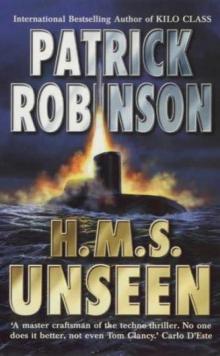 H.M.S. Unseen am-3
H.M.S. Unseen am-3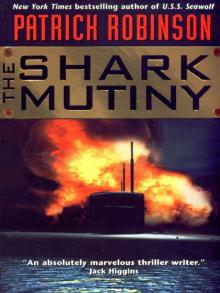 The Shark Mutiny (2001)
The Shark Mutiny (2001)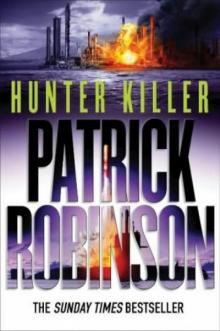 Hunter Killer am-8
Hunter Killer am-8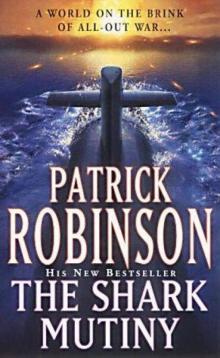 The Shark Mutiny am-5
The Shark Mutiny am-5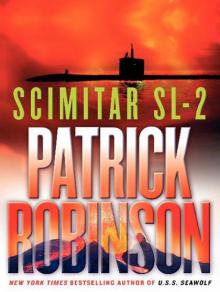 Scimitar SL-2
Scimitar SL-2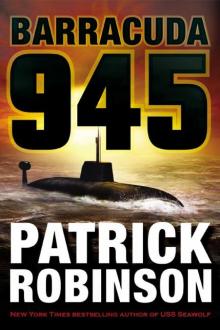 Barracuda 945 am-6
Barracuda 945 am-6 Hunter Killer
Hunter Killer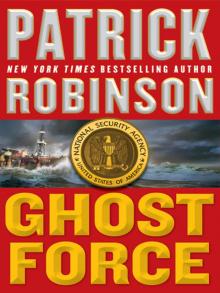 Ghost Force
Ghost Force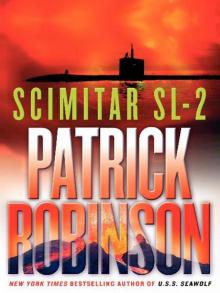 Scimitar SL-2 (2004)
Scimitar SL-2 (2004)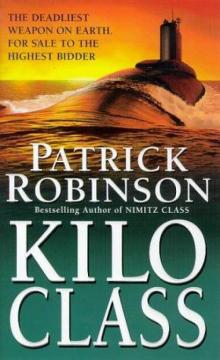 Kilo Class am-2
Kilo Class am-2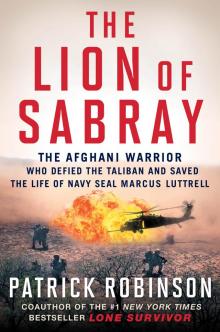 The Lion of Sabray
The Lion of Sabray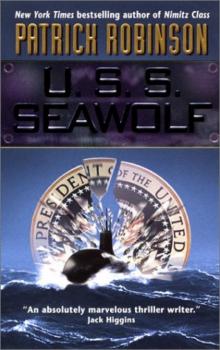 U.S.S. Seawolf am-4
U.S.S. Seawolf am-4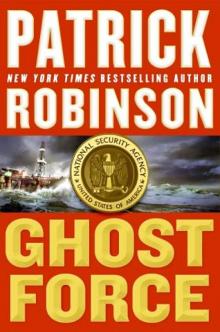 Ghost Force am-9
Ghost Force am-9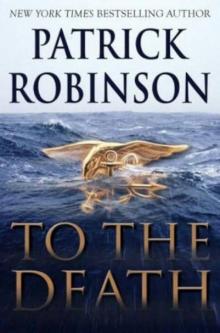 To the Death am-10
To the Death am-10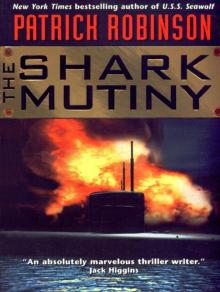 The Shark Mutiny
The Shark Mutiny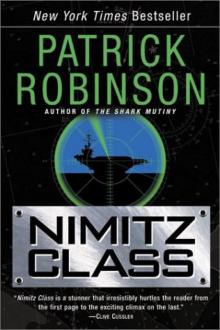 Nimitz Class am-1
Nimitz Class am-1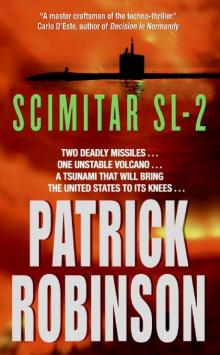 Scimitar SL-2 am-7
Scimitar SL-2 am-7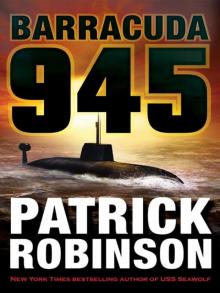 Barracuda 945
Barracuda 945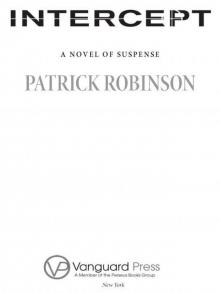 Intercept
Intercept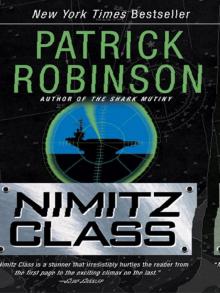 Nimitz Class (1997)
Nimitz Class (1997)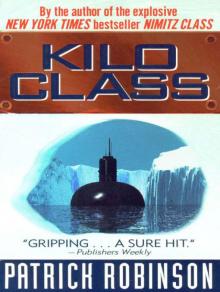 Kilo Class
Kilo Class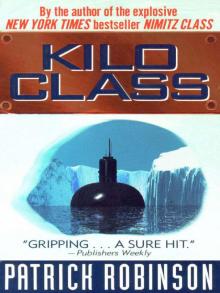 Kilo Class (1998)
Kilo Class (1998) Diamondhead
Diamondhead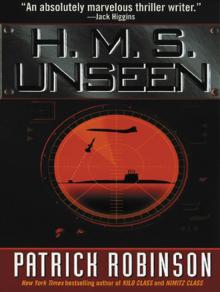 H.M.S. Unseen
H.M.S. Unseen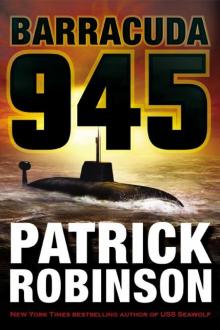 Barracuda 945 (2003)
Barracuda 945 (2003)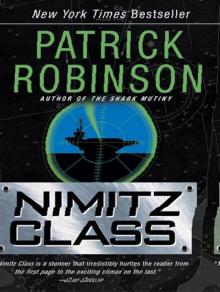 Nimitz Class
Nimitz Class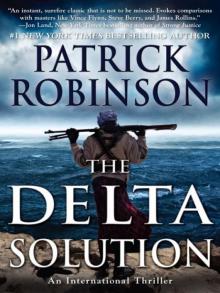 The Delta Solution
The Delta Solution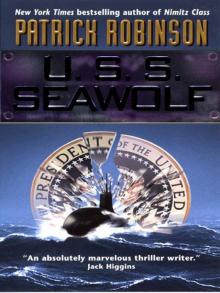 U.S.S. Seawolf
U.S.S. Seawolf